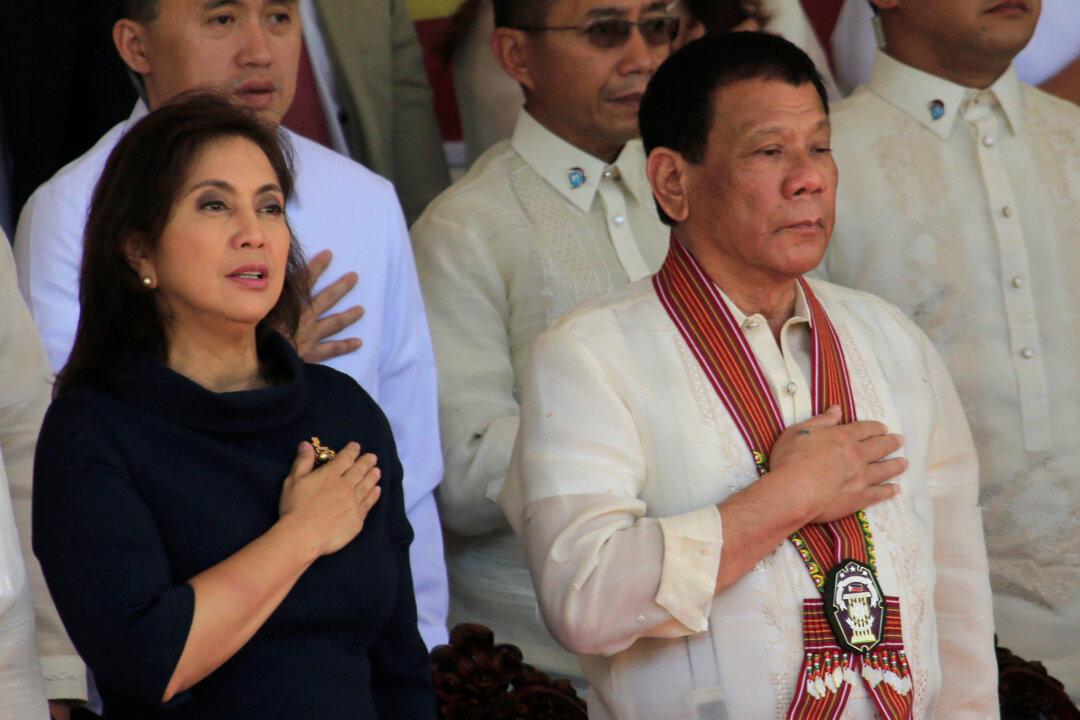MANILA—The vice president of the Philippines on Sept. 12 rebuked the country’s leader for being “reckless” in suggesting he would consider ignoring an arbitration ruling in its favor over a territorial dispute with China in order to forge a joint energy deal with Beijing.
Leni Robredo, who also leads the opposition, described as “extremely irresponsible” President Rodrigo Duterte’s apparent openness to concede to China and accept its offer to jointly develop gas reserves, which an international tribunal ruled Manila had the right to exploit.





